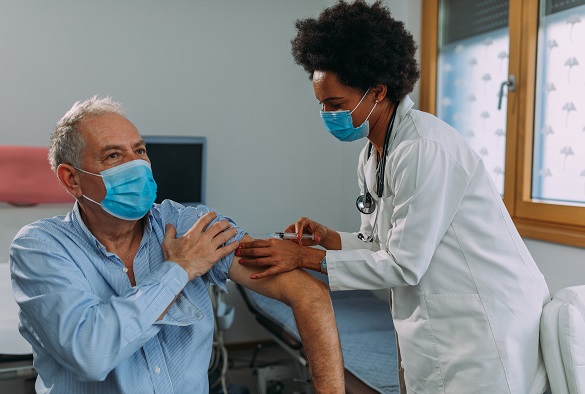South Africa expected to begin piloting HIV prevention shot in early 2023

South Africa is expected to begin piloting the every-other-month HIV prevention shot early next year, according to the international medicine financing initiative Unitaid. New modelling released this week shows that the injection could prevent as many as 52 000 new HIV infections in the next two decades if rolled out nationally. But to be cost-effective in South Africa, the research suggests the price of the injection must fall to levels drugmaker ViiV Healthcare says are unrealistic.
Wits Reproductive Health and HIV Institute (Wits RHI) and the national health department are expected to begin providing injections of the antiretroviral cabotegravir to young women to prevent HIV infection as part of a small Unitaid-funded project, spokesperson Thalia Bayle told Spotlight. This follows an initial announcement in March that Wits RHI had been selected as a partner in the project alongside the department.
Given every other month, the injection is the latest form of pre-exposure prophylaxis (PrEP) to use antiretroviral medication to prevent HIV infection in HIV-negative people.
Oral PrEP in the form of a once-a-day tablet has been available in South Africa since 2016. Today, the pill is available at more than 2 000 sites nationwide. Better known by its brand name Truvada, the tablet combines two antiretroviral drugs, emtricitabine, and tenofovir disoproxil fumarate. When taken correctly, the pill can reduce a person’s risk of contracting HIV by almost 99%.
Still, results from two large clinical trials led in part by South African researchers have found that people who were given an injection of the antiretroviral cabotegravir every other month were about 80% less likely to contract HIV than those on the HIV prevention pill. The bi-monthly shot likely outperformed Truvada, the World Health Organization explains in new guidelines, mainly because it was easier for people to get an injection every two months than to take the pills every day.
The Wits RHI pilot will follow the shot’s likely approval by the South African Health Products Regulatory Authority (SAHPRA). Unitaid told Spotlight it expects SAHPRA to approve the injection early next year. ViiV Healthcare applied for regulatory approval with SAHPRA in August 2021. The injection was approved by the United States Food and Drug Administration in December 2021.
The Wits RHI pilot, which will see the shot provided in some public health facilities and also via the organisation’s mobile clinics, is expected to be the first of several planned demonstration projects to see how best to roll out the shot.
Similar programmes are slated for Clicks pharmacies, for instance, according to the HIV prevention organisation AVAC. Divisional director of the health research organisation Ezintsha Dr Francois Venter confirmed to Spotlight that Ezintsha will be partnering with Clicks and the health department to offer the injection alongside Truvada and a monthly vaginal ring that uses the antiretroviral dapivirine to prevent HIV infection. Clicks also confirmed that they are in discussions with Ezintsha to take part in a future pilot.
In large clinical trials, the soft silicon ring reduced women’s risk of contracting HIV by between 27 to 35%, but this increased to 50% or more in more real-world settings, the WHO explains. Wits RHI is expected to begin piloting the ring with the national health department this month, according to Unitaid.
In the short term, the HIV prevention shot is likely to be confined to small pilot projects as the national health department — like many around the world — continues to study how best to bring complicated injections out of health facilities and closer to communities.
Price is also a potential stumbling block. The injection can cost as much as R391 000 per patient per year in the United States. But for the shot to be cost-effective in South Africa, this price would have to fall to at least R1 800 — less than 1% of the official US price tag, according to new modelling published this week in The Lancet HIV by the University of the Witwatersrand’s Health Economics and Epidemiology Research Office (HE2RO).
ViiV Healthcare, however, says that the price is unrealistic.
“Based on ViiV’s experience making [long-acting cabotegravir] for PrEP, this significantly underestimates the cost of manufacture,” ViiV Healthcare spokesperson Catherine Hartley told Spotlight in late September in response to a pre-print of the HE2RO study.
Click here to read the original article.